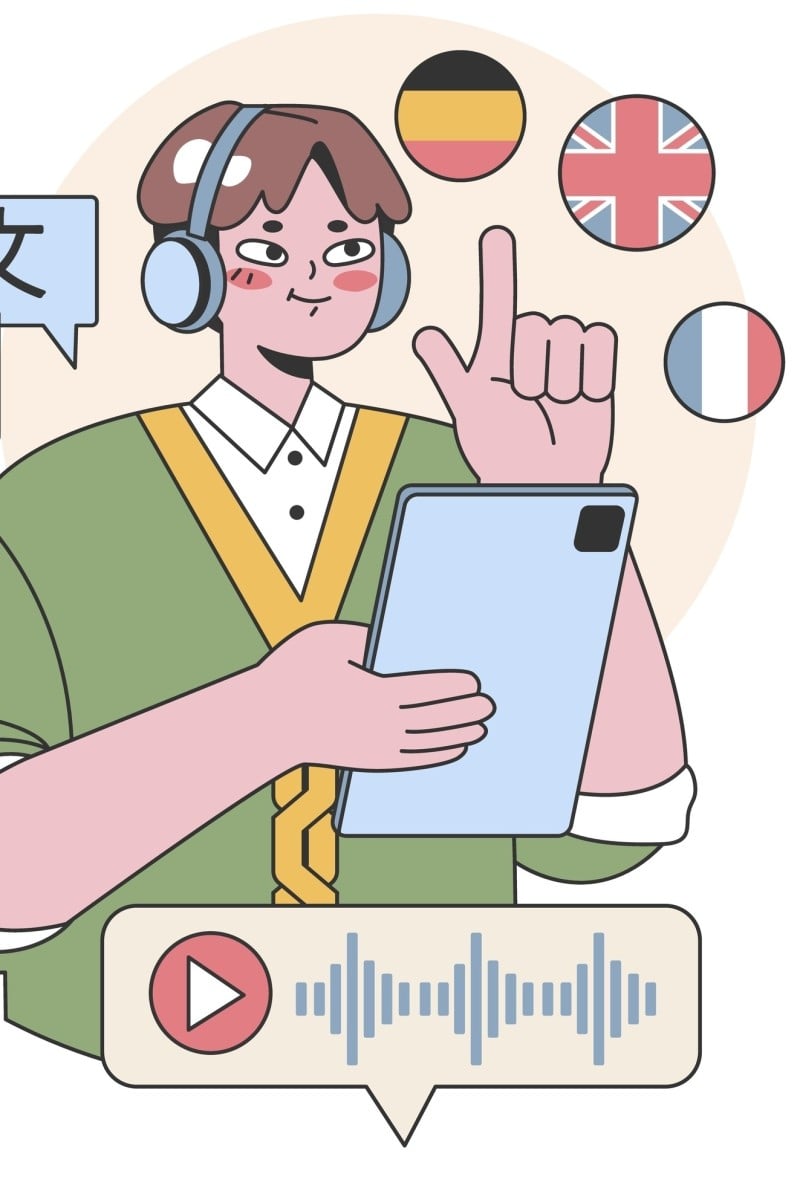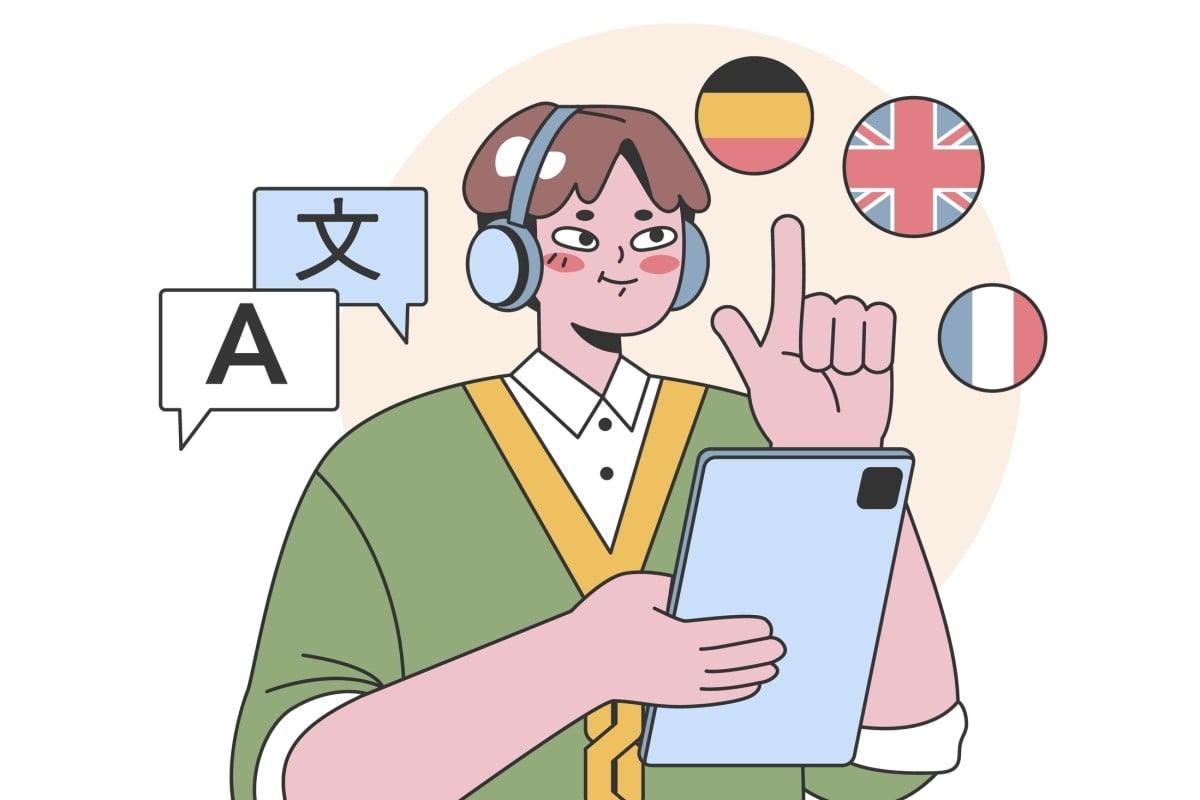
Face Off: Should students in Forms One to Three learn an additional foreign language?
Each week, two readers discuss a hot topic in a parliamentary-style debate that doesn’t necessarily reflect their personal viewpoints
 Should secondary school pupils in Forms One to Three be allowed to study an additional foreign language? Photo: Shutterstock
Should secondary school pupils in Forms One to Three be allowed to study an additional foreign language? Photo: ShutterstockIf you are interested in joining future Face Off debates, fill out this form to submit your application.
For: Holami Mak Ho-lam, 16, Ying Wa Girls’ School
Form One through Three students in Hong Kong should learn an additional foreign language, something crucial in today’s connected world, especially in an international city like ours.
The Hong Kong government is offering HK$250,000 (about US$32,250) to schools launching foreign language courses. This funding will cover the cost of employing qualified teachers and learning materials for languages such as Japanese, Korean, French, German, Spanish and Urdu.
As the city’s university entrance exam accepts a foreign language grade, the scheme offers another way for students to get good results. If students start early, in Form One, this initiative will give them a head start, reducing pressure later.
Hong Kong public secondary schools will offer foreign languages to younger students
Since Hong Kong’s working environment and education system push for biliteracy and trilingualism, students have a strong chance of already being trilingual in English, Cantonese and Mandarin to varying degrees. Adding another language can exponentially enhance students’ employability as they vie for a place in their dream company.
Multilingualism’s cognitive benefits also give students a competitive edge.
In one study by the United States National Institutes of Health, bilingual and monolingual children were asked to press a button to identify an animal in a series of images.
At first, they responded at the same speed. But once the children were asked to switch to identifying colours with a different button, bilinguals were faster than their monolingual counterparts in making the change, suggesting multilingual people can multitask and switch between tasks faster, a useful skill for students.
How classes on Indian languages bridge cultural gaps in Hong Kong
Some may argue these courses will turn a language into a “subject” rather than a skill. Students may find it dull in a school setting, affecting their overall interest in the language. Mitigating the problem is simple. Instructors can encourage complete immersion and give students a compelling goal to strive for.
In conclusion, younger secondary school students should study an additional foreign language with the government’s support and funding. Starting early, in Form One, will provide pupils with a crucial safety net when they take their university entrance exams, enhance their employability and empower the new generation.
Against: Dora Huang Ling-yuet, 14, St Paul’s Co-educational College
Research from the University of Cambridge on the Common European Framework of Reference for Languages (CEFR) – used in Europe to describe language ability – found that it takes anywhere from 100 to 200 hours for a motivated learner to get from one CEFR level to the next.
Many students have tried to learn a foreign language at some point, but is teaching this skill this early worth all the time and effort?
Studying a foreign language requires a significant investment of time and effort as it involves memorising vast amounts of new vocabulary, not to mention mastery of grammar and sentence patterns.
Students in Forms One through Three are in a stage where they are still mastering foundational skills in various subjects.
Requiring them to study an additional language diverts their time and attention away from core subjects in the school curriculum, such as Chinese and English, potentially weakening their overall academic performance.
New migrant children struggle to learn Cantonese and English
Some students study an additional language for travel, believing it helps them connect with locals and enrich their experiences. However, it might be more practical to use translation technology for one-time destinations, as mastering that language may not be as useful after their trip.
Some people may say that studying a foreign language will provide more opportunities in the future. However, some universities and jobs do not require a foreign language, as tools such as Google Translate exist.
It is better if students focus on proficiency in subjects directly aligned with their academic goals and future career paths.
Students may benefit more from focusing on developing soft skills than on language. Soft skills like time management and leadership are essential for individual development.
Hong Kong falls in global English proficiency rankings, lagging behind Malaysia and the Philippines
Mastering critical areas such as mathematics and English will provide students with a solid educational foundation, and soft skills will serve them in their long-term personal and professional lives.
In conclusion, while studying an additional foreign language may offer certain benefits, the significant time and effort required does not justify making it a subject for younger secondary students in Forms One through Three.
Students should focus on proficiency in subjects within the academic curriculum and developing soft skills that will benefit them in the long term.
